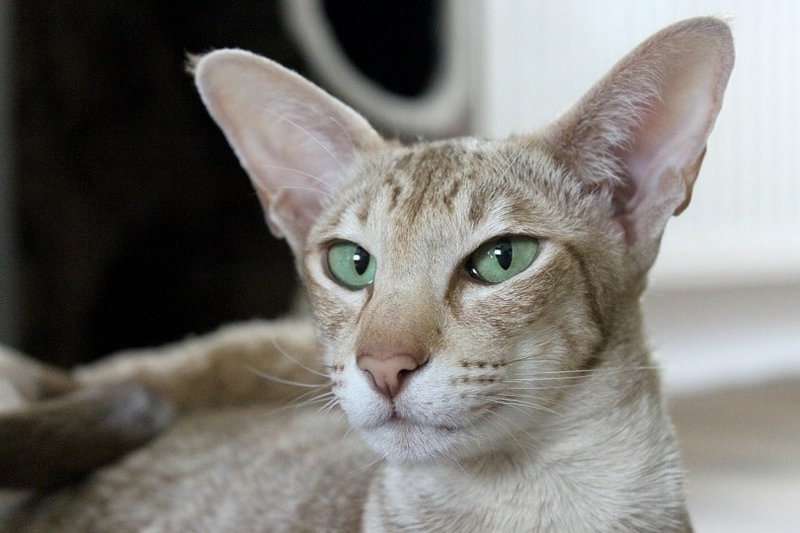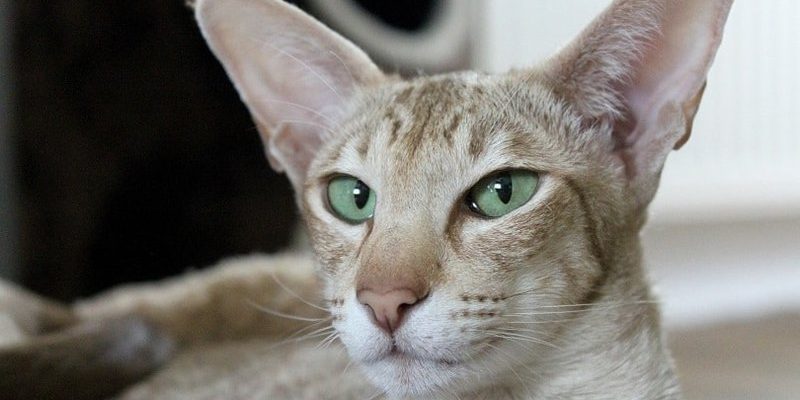
Caring for an Oriental Shorthair goes beyond just feeding and grooming. Much like a gardener tending to unique plants, you need to know what your cat requires to flourish. Think of it like being a detective—figuring out what signs to look for and how to act before issues escalate. With the right information, you can give your cat a long, joyous life filled with purrs and playful antics.
Common Health Problems in Oriental Shorthairs
1. Respiratory Issues
Oriental Shorthairs are prone to respiratory issues, mainly because of their unique facial structure. These cats have a slightly flat face, which can lead to nasal and throat complications. You might notice your cat sneezing a lot, having difficulty breathing, or even snoring. It’s as if their tiny noses are trying to communicate a struggle.
To help your Oriental Shorthair breathe easier, keep an eye on the environment. Avoid exposing them to dust, smoke, or strong perfumes. If your cat shows signs of respiratory distress, a visit to the vet is essential. Early intervention can be critical, just like catching a cold early can prevent it from turning into something worse.
2. Dental Problems
Just like us, cats can have their fair share of dental issues. Dental disease is common in Oriental Shorthairs and can lead to pain, tooth loss, and even systemic infections. Signs of dental trouble include bad breath, difficulty eating, or swollen gums.
Preventing dental problems doesn’t have to be daunting. Regularly brushing their teeth with cat-safe toothpaste can make a big difference. And if your cat isn’t fond of brushing, consider dental treats designed to keep plaque at bay. Think of it as giving them a “toothbrush” disguised as a treat!
3. Obesity
Obesity is a growing concern for many pets, including Oriental Shorthairs. These playful kitties love to lounge around, so it can be tempting to let them snack a bit too much. Being overweight can lead to a host of problems, including diabetes and joint issues.
To prevent obesity, monitor your cat’s food intake and ensure they have plenty of opportunities to exercise. Engaging them in playtime can be enjoyable for both of you. Use toys that mimic prey, like feather wands or laser pointers, to get them moving. It’s like turning their hunting instincts into a fun game, benefiting both their health and your bond.
4. Heart Disease
Unfortunately, heart disease is another health concern for Oriental Shorthairs. They are susceptible to a condition called hypertrophic cardiomyopathy (HCM), where the heart muscle becomes abnormally thick. This can lead to heart failure if not addressed.
Regular vet check-ups can help catch early signs of heart disease. Many vets recommend routine echocardiograms for Oriental Shorthairs as they age to monitor heart health. Think of these check-ups as preventive maintenance for your furry friend, keeping their purring engine running smoothly.
5. Skin Conditions
Oriental Shorthairs can experience a variety of skin conditions due to their short coat. Issues like allergies, infections, or even parasites can lead to itching and discomfort. You might notice excessive grooming, redness, or flaky skin.
To minimize skin problems, keep their living space clean and free of allergens. Regularly groom your cat to help remove loose fur and dander. If you suspect allergies, consult your vet for recommendations on hypoallergenic cat food or remedies. It’s all about ensuring your kitty is as comfortable as possible in their own skin.
How to Keep Your Oriental Shorthair Healthy
1. Regular Vet Visits
One of the best ways to maintain your cat’s health is through regular veterinary check-ups. These visits allow your vet to monitor your cat’s overall health and catch potential issues early. Make it a point to keep up with vaccinations and screenings as recommended by your veterinary professional.
You might think of vet visits like taking your car in for service. Just as you wouldn’t wait for your car to break down before getting it checked, the same goes for your furry friend. This proactive approach can save you both time, stress, and money in the long run.
2. A Balanced Diet
Nutrition plays a key role in your Oriental Shorthair’s health. Feeding them a high-quality, balanced diet tailored for their age and weight can help prevent many health issues. Look for cat food that meets the nutritional needs of your breed.
You might want to consult with your vet about the best diet options. It’s a bit like discovering the right recipe for your favorite dish—everyone has their own taste, but the right ingredients are crucial for the best outcome!
3. Exercise and Mental Stimulation
Keeping your Oriental Shorthair active is vital for their physical and mental health. Engage them with interactive toys, climbing structures, and play sessions. Mental stimulation is just as important. Consider puzzle feeders or toys that challenge their minds.
Think of it like gym sessions for your cat. Just as you would feel more energetic and happy after a workout, your cat will benefit from regular playtime. Plus, it strengthens your bond as you both enjoy the fun together!
4. Grooming Routine
A regular grooming routine is essential to your cat’s health. For Oriental Shorthairs, even though they have short hair, brushing them a few times a week can help reduce shedding and prevent hairballs. Plus, it’s a great way to check for any abnormalities on their skin.
Not only does grooming help you catch potential problems early, but it can also be a soothing experience for both of you. It’s that calming moment of connection, like winding down with a good book after a long day.
5. Stress Reduction
Stress can negatively affect your cat’s health, leading to various issues. Provide a calm environment with safe spaces for your Oriental Shorthair to explore and relax. You might want to create cozy hiding spots with blankets or boxes where they can retreat when feeling overwhelmed.
Reducing stress can also be about understanding your cat’s behavior. Just as we sometimes need downtime, so do our furry friends. Recognizing when they need a break can go a long way in keeping their minds and bodies healthy.
Final Thoughts
Caring for an Oriental Shorthair is both a joy and a responsibility. By being aware of the common health problems they might face and implementing preventive measures, you can help ensure your feline friend leads a long, happy life. Remember, it’s all about the little things you do regularly—like engaging in play, ensuring proper nutrition, and seeking veterinary care when needed. Every purr and playful swat from your cat will remind you that your efforts are truly worth it. So, keep that whiskered friend of yours healthy and thriving!

